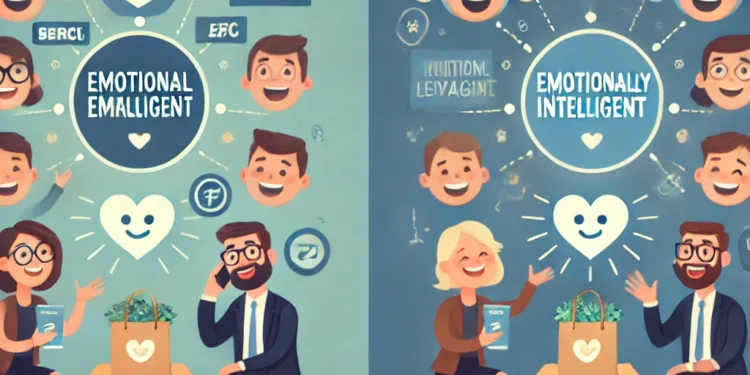No products in the cart.
Love as a Leadership Tool: The Secret to Long-Term Business Success
Leadership in the modern business world is often associated with vision, strategy, and execution. However, one of the most powerful yet underutilized tools for leadership is love. While the concept of love in business might seem unconventional, emotionally engaged leadership built on trust, empathy, and respect can drive employee loyalty, increase productivity, and create a thriving company culture. According to the Unified Theory of Emotions, love is a powerful force that, when applied in the workplace, can transform a business from the inside out.
What Does Love in Leadership Mean?
When we talk about love in the context of leadership, we are not referring to personal affection but rather to creating deep emotional connections with employees, built on mutual respect, empathy, and trust. Leaders who foster love in the workplace create an environment where employees feel valued, supported, and emotionally engaged. This form of emotional engagement is the key to unlocking long-term business success.
Love in leadership can be seen in how leaders communicate with their teams, show appreciation for their employees’ efforts, and create a supportive environment that prioritizes emotional well-being. It is about leading with compassion, understanding the emotional needs of employees, and building a culture where people feel emotionally safe and motivated.
The Power of Emotional Engagement
The Unified Theory of Emotions explains that when employees feel loved and emotionally engaged at work, they are more likely to be loyal, productive, and invested in the company’s success. Here’s how love transforms leadership:
- Emotional Engagement Leads to Loyalty: Employees who feel emotionally connected to their leaders are more loyal to the company. They are willing to go above and beyond in their roles because they feel valued and appreciated. Loyalty, in turn, reduces turnover and the costs associated with hiring and training new employees.
- Increased Productivity: Love in leadership fosters a sense of belonging and purpose in employees. When people feel emotionally engaged with their work and their leader, they are more motivated to perform at their best. This emotional connection drives productivity and encourages employees to take ownership of their work.
- Building Resilience: In tough times, teams that are emotionally connected to their leader are more resilient. Employees who trust and love their leader are more willing to stick with the company through challenges, knowing that their emotional well-being is a priority. This resilience helps businesses weather downturns and come out stronger on the other side.
- Creating a Positive Culture: Leaders who show love and empathy create a positive company culture where employees feel safe, respected, and valued. This type of culture is not only good for employee morale but also enhances the company’s reputation, attracting top talent and loyal customers.
How to Foster Love as a Leadership Tool
Leaders who want to harness the power of love in the workplace can start by focusing on a few key emotional engagement strategies:
- Show Empathy: Empathy is at the heart of love in leadership. Leaders who take the time to understand their employees’ emotions and perspectives build stronger emotional connections. Showing empathy means listening actively, acknowledging challenges, and offering support when needed.
- Provide Emotional Support: Employees face emotional challenges both inside and outside of work. Leaders who create an emotionally supportive environment, where employees feel comfortable sharing their concerns, help reduce emotional stress and build trust. Offering flexibility, mental health resources, and emotional check-ins can go a long way in fostering emotional engagement.
- Recognize and Appreciate Employees: Regularly showing appreciation for employees’ hard work and contributions fosters feelings of love and belonging. Recognition doesn’t have to be grand gestures — a simple thank-you or public acknowledgment can make employees feel valued and emotionally connected to the company.
- Lead with Compassion and Fairness: Love in leadership is also about being fair, just, and compassionate in decision-making. Leaders who consistently treat employees with fairness and compassion build trust and respect. When employees know that their leader will treat them justly and listen to their concerns, they feel more secure in their roles and more emotionally connected to the company. Compassionate leadership creates a work environment where employees feel understood and cared for, reducing stress and fostering loyalty.
The Long-Term Benefits of Love in Leadership
Love as a leadership tool provides long-term benefits that go beyond immediate productivity gains. When employees feel emotionally engaged and connected to their leaders, the entire organization experiences positive ripple effects:
- Reduced Turnover and Hiring Costs: Employees who feel emotionally connected to their leader and the company are less likely to leave, reducing turnover. High employee retention saves businesses the significant costs associated with recruiting, onboarding, and training new employees.
- Increased Innovation and Creativity: Emotional engagement creates a safe space for employees to express new ideas and take risks. When employees feel supported, they are more likely to contribute innovative solutions and think creatively, which is essential for long-term business growth.
- Enhanced Team Collaboration: Teams that are emotionally connected to each other and their leaders work better together. The trust and respect built through emotional engagement lead to more effective collaboration, which in turn drives better results for the business.
- Stronger Customer Relationships: A company culture built on love and emotional engagement doesn’t just benefit employees — it also positively impacts customers. Employees who feel valued and emotionally connected to their work are more likely to deliver exceptional customer service, fostering long-term customer loyalty.
Conclusion: Love as a Competitive Advantage
In the business world, love is often overlooked as a leadership tool, but it can be a competitive advantage. Leaders who foster emotional connections with their employees unlock levels of loyalty, productivity, and resilience that are difficult to achieve through traditional management techniques alone. The Unified Theory of Emotions shows us that when employees feel loved and emotionally engaged, they invest more in the company’s success, leading to long-term benefits for both the organization and its people.
By leading with empathy, fairness, and compassion, businesses can create an emotionally engaged workforce that is more productive, innovative, and loyal. Love in leadership is not just about making employees feel good — it’s about creating the conditions for lasting business success. Embracing emotional intelligence and love as leadership tools is the key to building a thriving, resilient organization in today’s competitive market.












